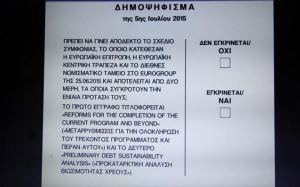EU and Greece: would game theory have helped?
Updated on 05 April 2024
Greece’s finance minister Yanis Varoufakis has written books on game theory and “conflicts in economics.”[1] Does this qualify him as a skillful negotiator? Leaving aside the fact that he also qualifies himself as “libertarian-Marxist” – an oxymoron – I remain skeptical about the connection.
In game theory, the possible outcomes are defined, certain, final and complete. In a negotiation like the current one, the results are complex: comparing “packages” is like equating apples and oranges. Many elements merely reflect predictions – which are mostly fallible. Finally, the negotiation is implicitly also about burden-sharing within Greece (but also among creditors). Such trade-offs are incommensurable.
As for their “completeness,” let us be charitable: “best efforts” would describe the situation better. Contrary to the dance of seven veils, which eventually disrobes, diplomatic negotiations are often an exercise in en-robing
Signing on the dotted line after a successful negotiation
In real life, nothing is final: the watch never stops. All outcomes are ambiguous as they are visited and revisited by context. Any result will trigger an unpredictable, chaotic process. No one knows what the national or international repercussions of a default are – remember the Y2K bug (it made India’s IT industry – and little else[2]).
Game theory ignores the negotiation process – it is predicated on instant “take or leave it” propositions. Between the EU and Greece, the negotiations have lasted for months. The negotiating process co-determines the outcome i. a. by excluding or setting aside options. In my experience, what negotiators leave out of the outcome is often more important that what leave in the final pot.
And, of course, negotiations are embedded in the negotiators. Their personalities affect the outcome significantly. Negotiations are about “getting to trust one another.” Whether a relentless conflictual stance is constructive, is debatable. Building complicity among negotiators is necessary; yet, it is not a foregone conclusion. Personalities may have been a decisive factor in the EU-Greece negotiations and their outcome.
What is interesting about the current result is that The government has asked Greek citizens asked to endorse or reject it. They have a week to make up their mind. Meanwhile, ATMs are out of action, banks are closed, the shelves empty, and general mayhem seems to prevail.
Greece’s Prime Minister Alexis Tsipras has urged voters to reject soundly austerity proposals as thousands of his supporters rallied in Athens. He has even threatened to resign.[3] Politically, it is astute: the opposition would be asked to carry out the economy measures, earning the resentment of the people. If the people follow his plea, the PM reckons, he be in a stronger position, should he return to the negotiating table.
There has been no meaningful debate in Parliament on the referendum. The opposition has not had the time to organize. The PM is steam-rolling the process. Populism it may be, democracy it is not. Furthermore, the manipulation of the ballot is patent:
Switzerland, with more than a century of referenda, asks its people to write in yes/no. Here, a choice of boxes is presented: “No” is atop the “yes” – clumsily suggesting refusal. “Oxi” – the Greek word for “no” – has a historical connotation. In 1940, Italy issued Greece an ultimatum. The Greek PM answered “oxi.” Oxi-Day in Greece celebrates this refusal of PM Metaxas.[4]
Will PM Tsipras and his game-theory wizard succeed? I have my doubts. The current chaos is an indication to the people of what lies ahead, should they reject the result. Greece wishes to stay in the Eurozone. This ambition may be an illusion or a technical impossibility. Forced or voluntary, this kind of monetary secession has never been tried before (and just as the tourist season starts). The government has made no plans for it. The adage “the devil you know…” may transform the referendum into a vote of OKI-confidence in the PM and his team.
Should diplomats learn game theory? My curmudgeonly answer is no: I don’t need to understand the inner workings of a car to drive it. One better studies traffic patterns and rules. Experience is the key. A few well-designed video games exploring the salient elements of game theory would be preferable. What I would reject decidedly are analogies about negotiations based on game theory. Conflict is essentialized to the “prisoner’s dilemma” or equivalent. It is like launching a paper airplane and pretending to be a pilot.
[2] https://www.theguardian.com/world/1998/dec/30/millennium.uk



Leave a Reply
Want to join the discussion?Feel free to contribute!